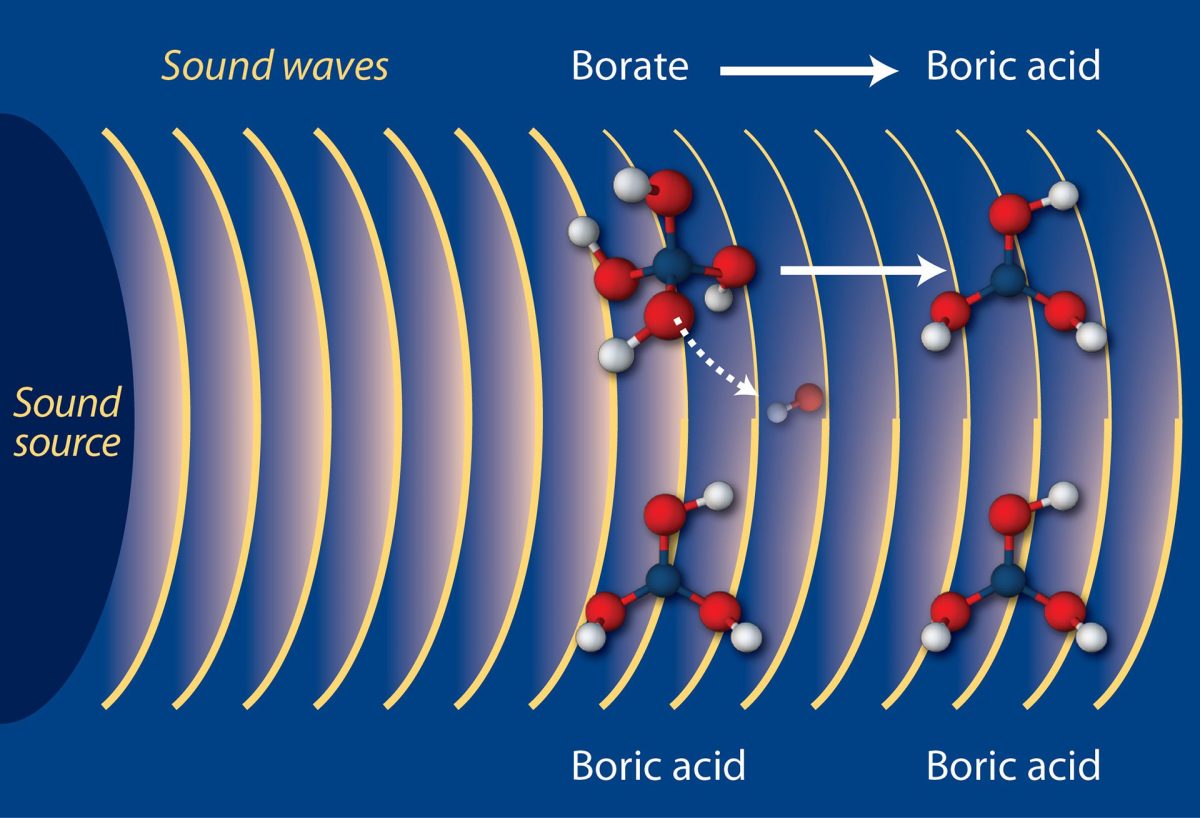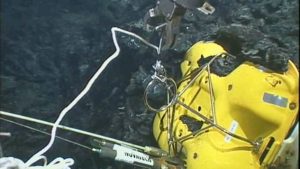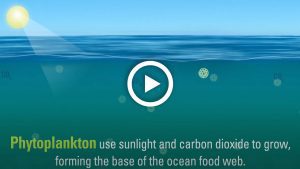Chemical reactions can influence sound waves, and vice-versa. Low-frequency sound waves in the ocean cause borate to lose an -OH group and become boric acid (top). In the process, the sound waves lose energy. An identical sound wave has no effect on boric acid (bottom). More-acidic conditions reduce the amount of borate in seawater, which led some researchers to suggest that ocean acidification will lead to less absorption of sound energy, allowing sound waves to travel farther in the ocean than they do at present. WHOI scientists showed that the effect will be minimal. (Illustration by Jack Cook, © Woods Hole Oceanographic Institution)
Image and Visual Licensing
WHOI copyright digital assets (stills and video) contained on this website can be licensed for non-commercial use upon request and approval. Please contact WHOI Digital Assets at images@whoi.edu or (508) 289-2647.








